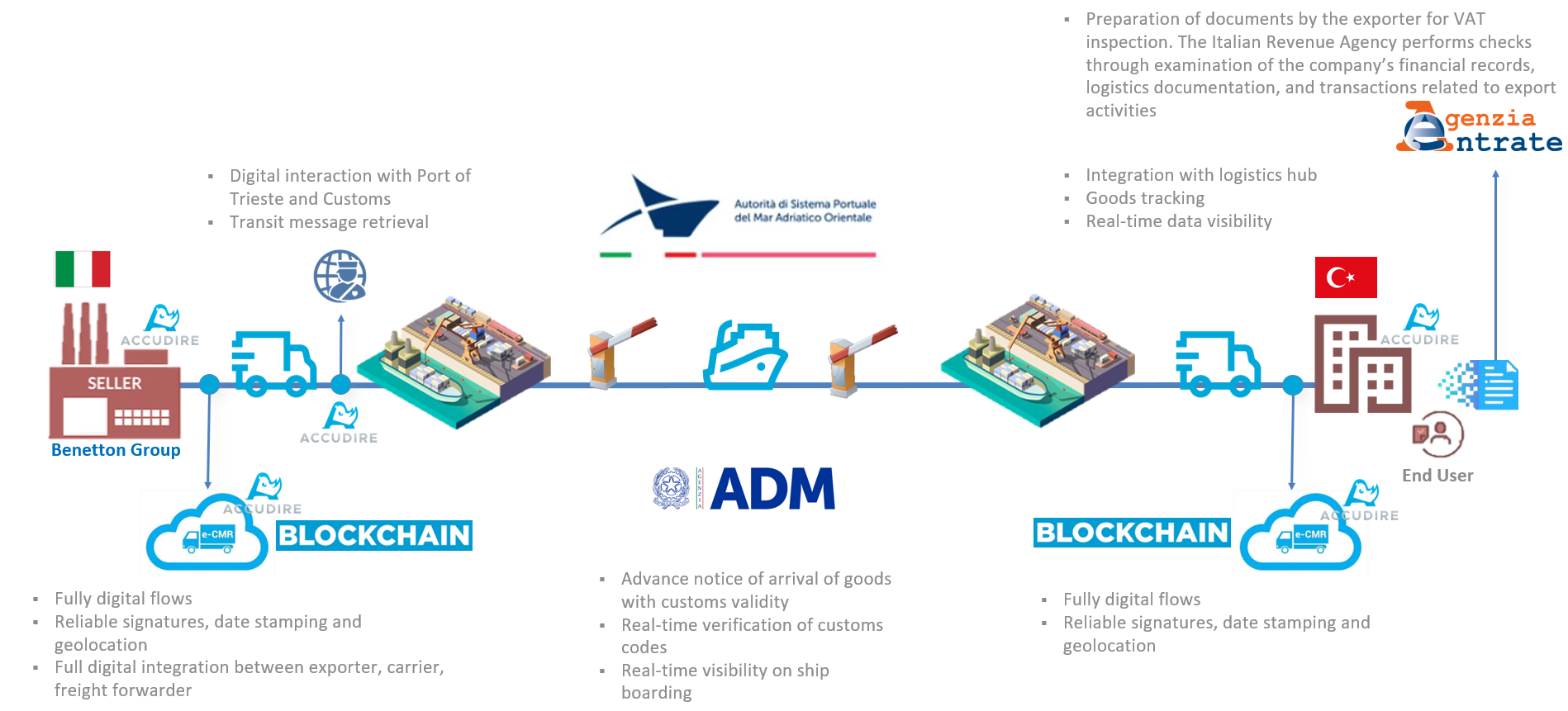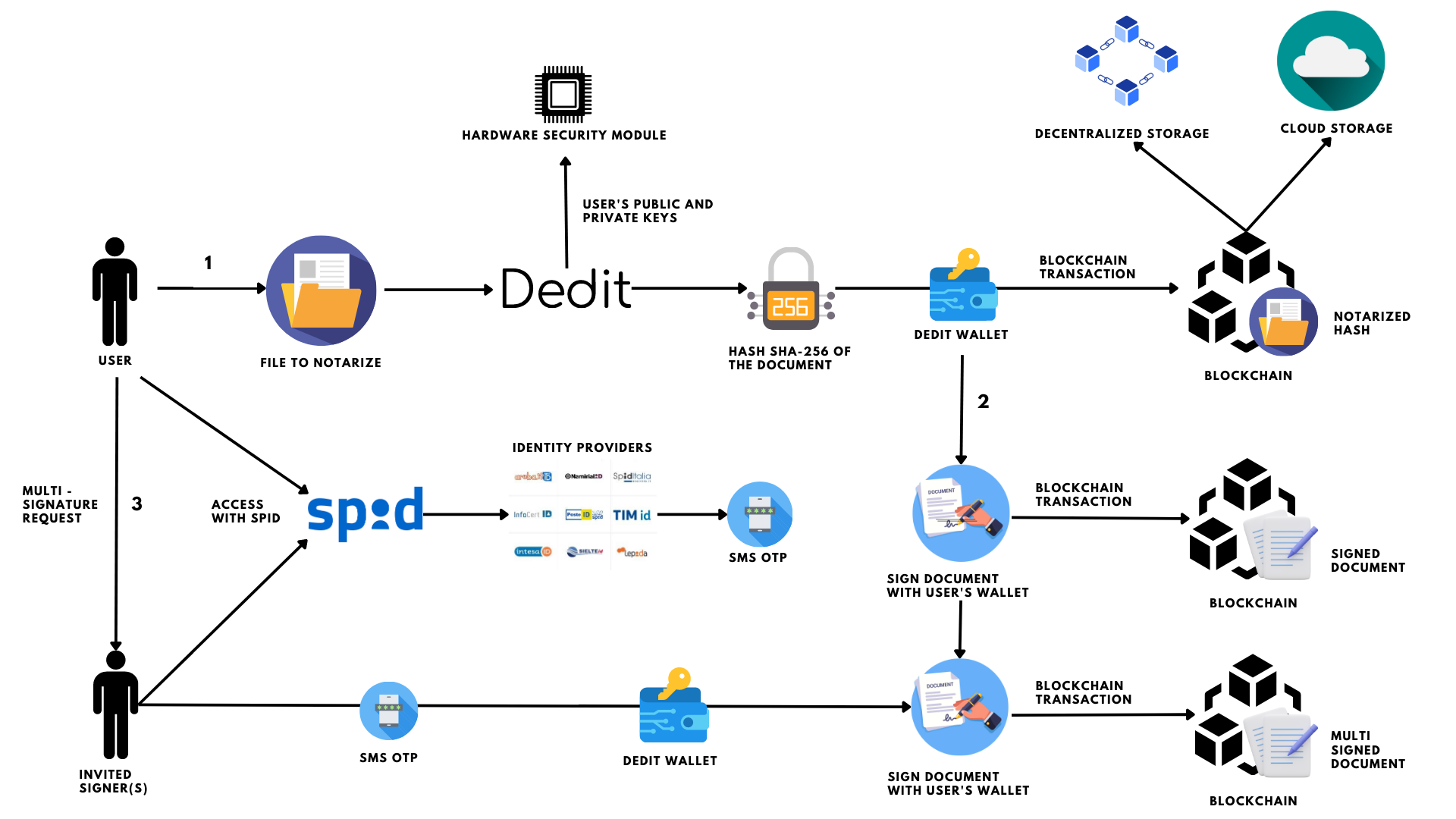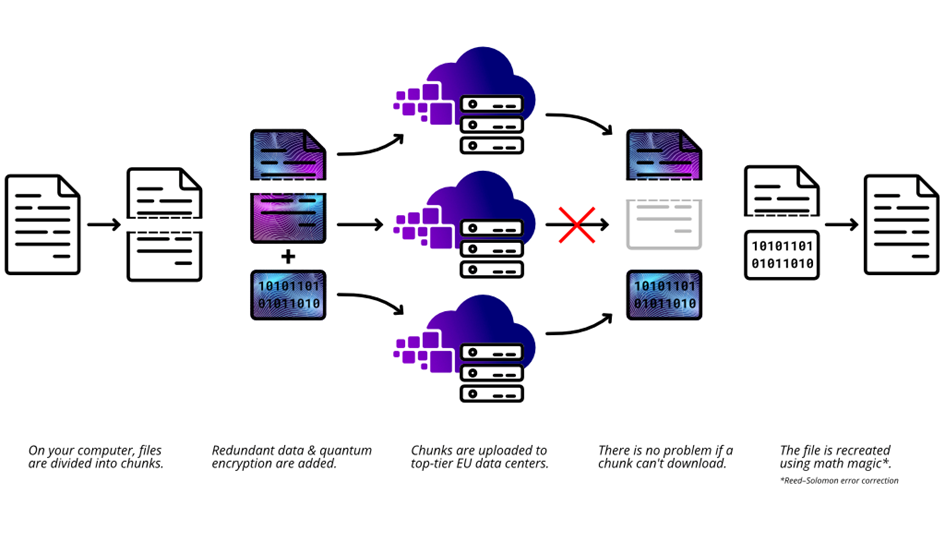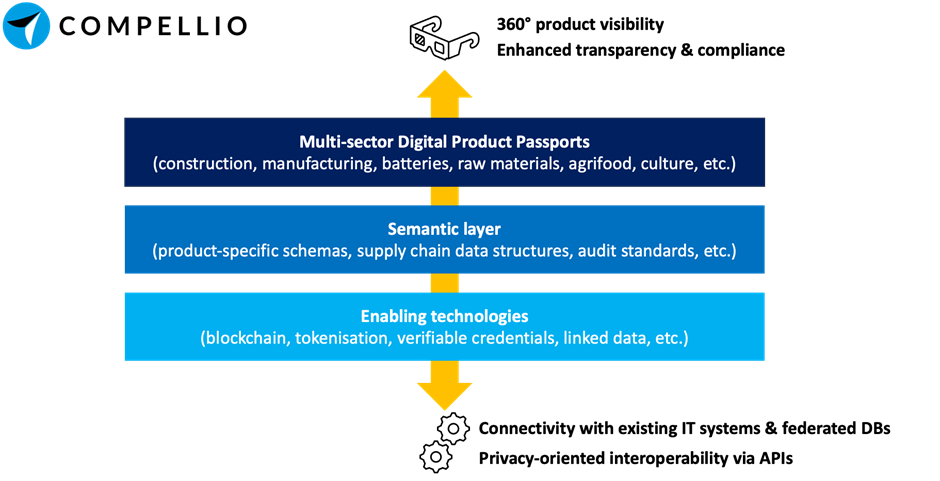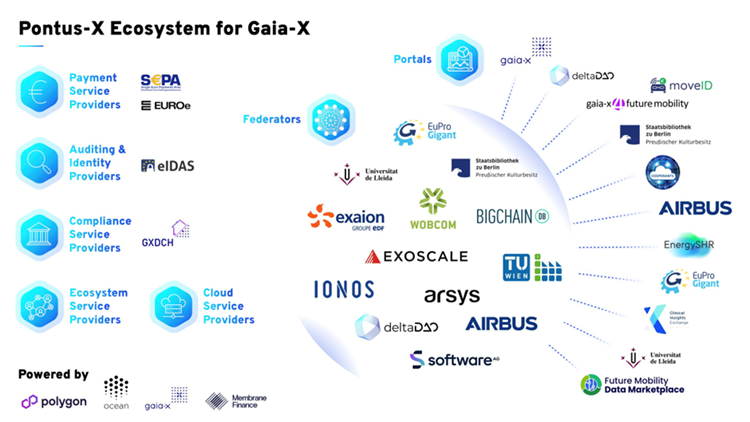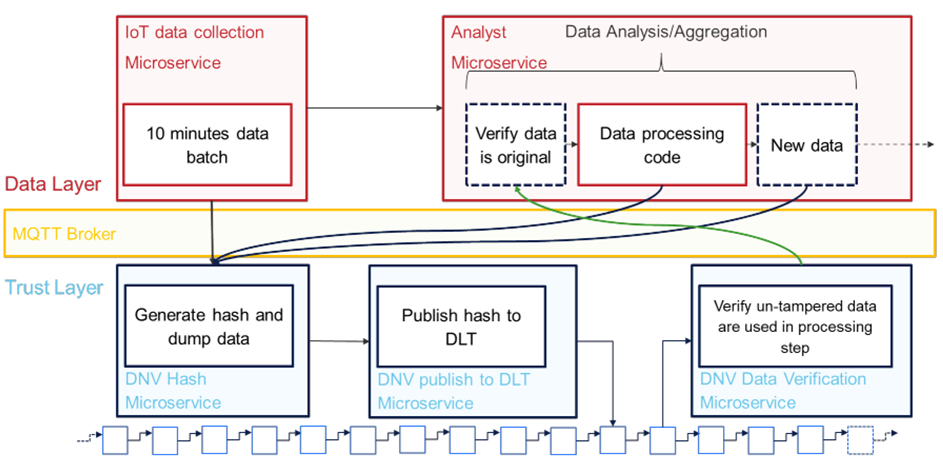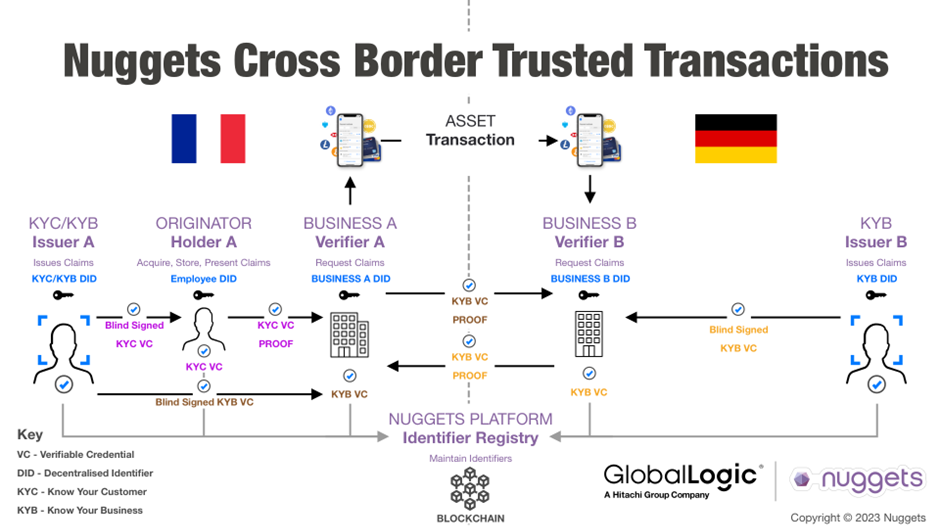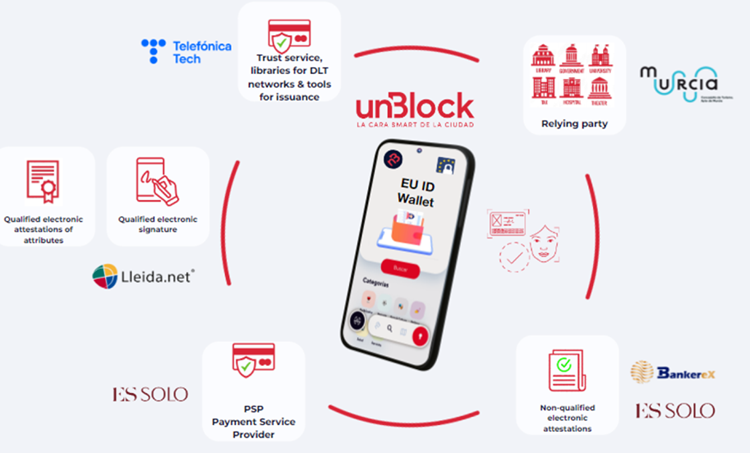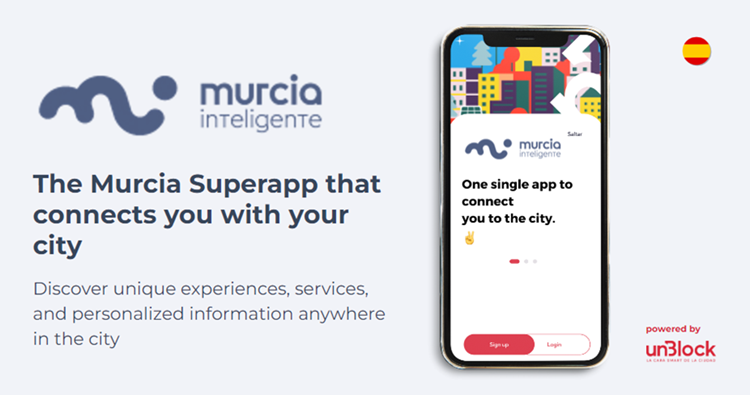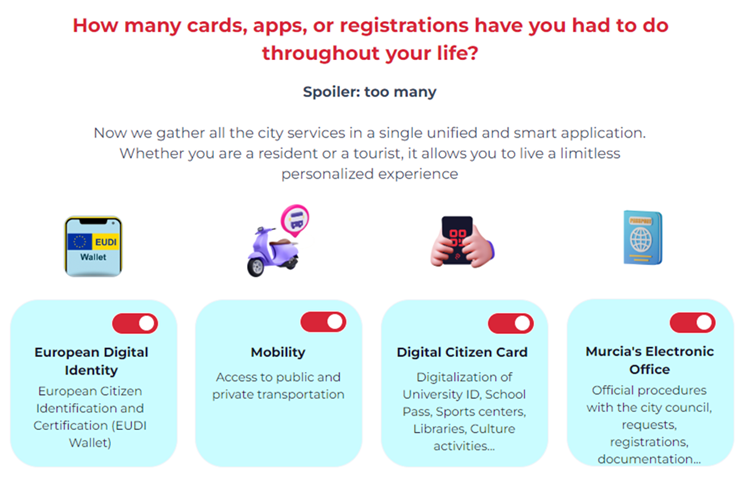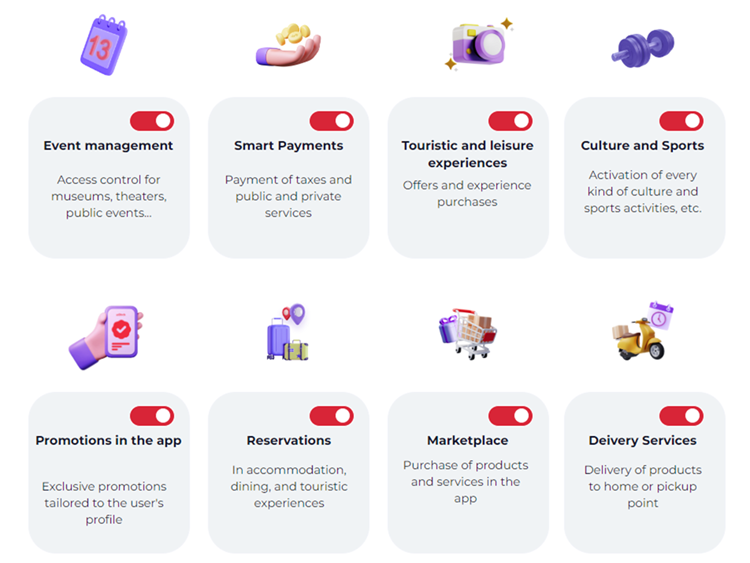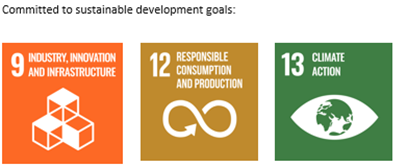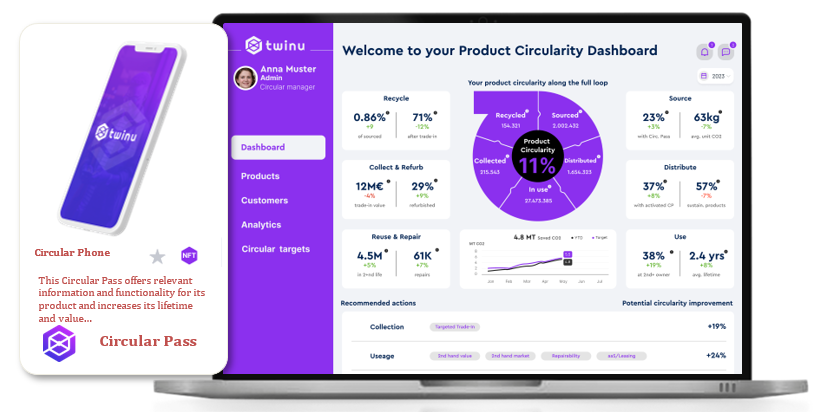The DLT use case was conducted in July 2021 and presented two months later in Trieste during the conference “Italy Smart Export”. The “Pilot 1.0” was a shipment from Italy to Turkey with a complete digitisation of the logistics documentation and interoperability between public and private subjects involved. It was the first fully digital shipment exploiting blockchain technology in Italy and Europe and it involved the following players: Benetton Group (exporting company), Port of Trieste (customs and place of departure for the Ro-Ro shipment), ADM (the Italian Customs Agency which gave a quality check about the correctness of the process), a global freight forwarder and a Turkish Import Company. The shipment has been done using the ACCUDIRE platform and creating an e-CMR (Electronic Consignment Note for road transportation). The identities of the subjects involved have been verified through two-factor authentication and their signatures have been geolocated and saved on blockchain, interoperating with AIDA (ADM’s software) and sending the pre-arrival notification of goods to the PCS (Port Community Systems). Specifically, the e-CMR document needs 3 signatures (sender, carrier and receiver) and ACCUDIRE saves on blockchain these signatures (including geolocation, identity and all other relevant information) in order to guarantee immutability, traceability and security of the shipping related information. Blockchain used is a permissioned Hyper Ledger Fabric supplied by TrustedChain with nodes all in Italy at AgID (Agency for Digital Italy) qualified entities (Trust Service Providers, according to the eIDAS-regulation).
The pilot has been inserted also as a use case of the DTLF and mentioned in the Subgroup 1 (Paperless Transport) of the e-FTI (Electronic Freight Transport Information) discussions, which is regularising and formalising digital processes related to the transport of goods across Europe. Additionally, ACCUDIRE is part of the European Horizon 2020 TRICK project, which aims at supporting SMEs operating in fashion and food industries in the adoption, tracing and demonstration of sustainable approaches by means of Blockchain.
The impact of the use case has been relevant for Italy and Europe. The pilot represents the first shipment with fully digitised documents and processes with blockchain, simplifying all the procedures and especially the interoperability between public and private players involved. ACCUDIRE is now an innovative platform that allows Large and SMEs involved in global supply chains in the complete digitisation of processes and documentation through a paperless and eco-friendly approach, preserving “Made in” and protecting products against counterfeiting. Thanks to ACCUDIRE, companies can reduce costs, maximise margins, decrease waste and work in synergy with the many other actors involved along the chain. In addition, ACCUDIRE allows a better connection between trade and trade finance, simplifying the flow of financial information and thus the payment of the goods and the dialogue between banks and firms.
Giotto OnChain Notarization SaaS
The service enables the authenticity and immutability of digital assets to be certified through the attribution of a timestamp and a certain owner of the transaction performed and guarantees the asset integrity and origin. It’s a highly innovative evolution of blockchain notarisation use cases because it exceeds the constraints of cryptocurrencies and balance sheets or technological integration skills, potentially interfacing any Blockchain. The service is a SaaS (Software As A Service) based on blockchain, other decentralised technologies and cloud services. It allows notarisation on public blockchains (Ethereum and Bitcoin) via APIs, but thanks to AlmavivA hybrid model it has no technological lock-in in the development of blockchain solutions, so it is compatible with the European Blockchain Services Infrastructure (EBSI) too. It produces interoperable receipts compliant with the Chainpoint opensource standard that enables the verification of notarisations without the need to interact with the SaaS service that generated them. The receipts are also made available on the decentralised file system IPFS (InterPlanetary File System).
Highlights:
- authentication of any type of file to prove its originality and existence at a certain date and time;
- verification of the incorruptibility of assets;
- confirmation of a creative work registration;
- certification of administrative procedures and workflows, response to a tender, maintenance certificates etc.;
- transparency to verify autonomously without notarisations’ costs and without lock-in on the service provider;
- flexibility and modularity thanks to API model to maximise interoperability and integration with existing and future systems.
Advantages:
- Operational: simplified integration of blockchain services with IT systems in a scalable way through global, national or EU infrastructures (EBSI).
- Commercial: cutting-edge features in a simple and effective way through qualified tools and Cloud with guaranteed certification, regulatory compliance and security that increases the protection of valuable data.
- Social and public: make public docs and processes transparent and verifiable increases actors’ trust and social impact on citizens and PA.
- Economic: no crypto risk in customers’ balance sheets, notarisation on public blockchains, requiring crypto, is done via a third party that can guarantee true disintermediated verification without vendor lockin and that it has performed exactly the required transaction.
- Technical: optimise multiple operations by performing a notarisation round, from which receipts are generated, this also increases Privacy and prevents the appearance in the receipts of other customers data hashes.
Giotto OnChain Notarization SaaS, thanks to the use of opensource format as Blockchain Proof & Anchoring Standard for receipts, contributes to the interoperability pillar of the European Strategy for Data, comprised within the wider policy “a Europe fit for the digital age”. This also avoids vendor-lock in and allows for trustless verification, which is mandatory when the use case is adopted in the context of cooperation between Public Bodies or Private entities. Moreover, the Service is currently being proposed as a Building Block in R&D projects involving carbon footprint certification, which allows Enterprises to implement a reliable tool to reach their ESG objectives in the context of the European Green Deal. Finally, the certification function is a primary driver in fighting fake news and misinformation, contributing to media pluralism, and preserving European Democracy.
Anotherblock
introducing anotherblock, a revolutionary platform powering emotional and financial bonds between creators and consumers.
at the heart of the traditional music rights landscape, anotherblock provides a platform for creators to sell their rights to their community, bypassing financial intermediaries, all enabled by cutting-edge technology.
our music ownership tokens have been implemented using the ERC-721 standard on Ethereum. each token possesses a unique custom ID that stores the ownership percentage for a particular song on the blockchain. these tokens encompass unique artwork together with a real-world legal contract which includes the terms of streaming royalties and guarantees the collector’s legitimate ownership rights.
with anotherblock, creators gain the opportunity to sell their music rights directly to consumers, ensuring a fair and transparent transaction. by removing the presence of middlemen, creators can secure a fair price for their music rights, while maintaining control over their artistic endeavors.
For consumers, anotherblock offer a unique investment opportunity to form an emotional and financial connection with the tracks they love. through anotherblock, the community can invest in individual tracks, unlocking a new level of engagement with the music they are passionate about. this innovative approach bridges the gap between creators and their community, fostering a mutually beneficial relationship within the music ecosystem.
by leveraging our platform’s capabilities, anotherblock paves the way for a seamless and inclusive music investment experience, providing a win-win solution for both creators and the community alike.
Blockchain Italia
Dedit is a blockchain-based platform designed for secure and efficient document notarization, signing, storage, and sharing. Using Ethereum and Algorand and supporting various EVM blockchains, it produces an immutable, timestamped, and author-verified record of every document by generating a unique digital fingerprint via a hash function and registering it on a specific blockchain block. The wide range of protocols and development languages that are supported, allow it to present itself to the market as a flexible model. The platform offers file management features such as dossier classification, custom viewing, and encrypted storage on both cloud and IPFS technology. It also supports multiple signatures on a document and integrates with SPID to ensure its legal validity in Italy, crucial for certain financial sector use cases.
Dedit has demonstrated various benefits in redesigning data certification and validation processes both with third-party clients and within internal workflows: operationally, it optimizes workflows and accelerates digitalization; economically, it boosts scalability and resource efficiency; socially, it reduces environmental impact through paperless operations and helps prevent document fraud; and commercially, it enhances customer attraction through transparent and comprehensive services. Additionally, Dedit brings transparency and data immutability.
In terms of regulatory compliance, Dedit aims to become a one-stop solution for managing all contractual documents and important assets. It seeks to align with the eIDAS regulation, leveraging national electronic identification schemes like Italy’s SPID and CIE during wallet creation. Dedit has also obtained the status of Advanced Electronic Signature according to legal opinions and compliance verification by our partner. Dedit is now seeking the status of Qualified Electronic Signature to ensure document authenticity, integrity, and non-repudiation, without continuous involvement of a trust service provider beyond the initial identity verification.
Dedit has integrated Hardware Security Module, to enhance user key security and streamline the password recovery and digital signing process. HSM, a specialized device providing an ultra-secure infrastructure for storing and managing cryptographic keys, will protect and store our users’ public and private keys, ensuring their anonymity and security. The HSM integration will benefit our users by allowing secure password recovery if lost and simplifying the digital signing process, reducing user interaction complexity with our application, and enhancing the overall user experience.
Chunk Works
Quantum-secure decentralized data solution
Our goal is to contribute to a more secure and equitable digital future because data breaches and hacks are no longer a question of “if” but “when”. Therefore, Chunk Works software offers easy-to-use, quantum-secure hybrid encryption and autonomous data recovery built on in-house-developed distributed ledger technology.
Chunk Works combines the convenience of multi-system operability with quantum-secure hybrid encryption. It prioritizes privacy and security without sacrificing performance and can be deployed on any infrastructure (cloud, on-premise, devices, etc.). Under the hood, data storage and retrieval are made more reliable by automatically distributing data across locations. With its autonomous data recovery system, users can be confident that their data is available to them when they need it.
How is data handled?
Chunk Works’ software safely stores your data using distributed ledger technology (DLT) and Erasure Coding (EC). EC protects data by breaking it up into pieces called chunks, encoding them with redundant data, and storing them in a number of different locations via DLT. In case any of the chunks later get lost, damaged, or can’t otherwise be downloaded, the added redundant data can recreate the file. Chunk Works cutting-edge software encrypts these chunks with post-quantum cryptography and stores them across locations.
COINFIRM
Our company gathers data from numerous on-chain, off-chain and shared intelligence data sources. The collected data is processed through advanced algorithms to create forensic-level knowledge of asset flows related to crime and money laundering. The system is supplemented with advanced risk-based analytics as required by regulators worldwide. Our AML Platform evaluates AML/CFT risks of blockchain addresses, allowing for the in-depth source of funds analyses and real-time monitoring of address clusters and transactions.
We support crypto market participants in meeting regulatory requirements. Our platform is used by VASP’ s like Banks, Financial Intermediaries, Custodians, Exchanges, Payment Providers, FIUs and DeFi protocols trusted in our solutions. We work closely and assist Regulators, educate Governments, provide risk management, crypto AML and blockchain analytics for numerous of European Banks, Crypto Exchanges, Trading Platforms, Wallet providers and custody service providers, Payment Providers, FIUs and DeFi protocols.
Commissariat à l’énergie atomique
The Green Blockchain combines GreenTech and Tech4Green to notarise the treatment of climatic data from low-cost sensors deployed in urban areas. We focus on the issue of digital frugality, in the context of the environmental objectives of the Paris Agreement and the European infrastructure for the observation of the carbon cycle, called ICOS.
Our use case consists of a blockchain-based tool for collecting, processing and displaying CO2 concentrations from sensors deployed in urban areas. A network of sensors collects raw climatic data and sends it to a laboratory (typically one for each urban area) that treats this data in order to arrive at a temporal series of CO2 concentrations for each sensor. The treated data is then made public through a web dashboard, and the treatment process is notarised via calls to smart contracts on the blockchain. Our tool relies on non-energy consuming technologies such as proof-of-stake and Byzantine fault tolerance, which can reduce the consumption of traditional blockchains (i.e., those based on proof-of-work) by three orders of magnitude.
Notarisation is done by anchoring (i.e., storing the hashes of data on the blockchain to ensure data’s integrity). The anchoring allows the laboratories (or other third parties) to audit each other by reproducing the treatment process and checking data’s integrity against the hashes stored on the blockchain. The ultimate goal is to provide trust on the climatic data and its treatment to the public.
Essentially, the Green Blockchain adds new trusted services that enable European environmental players (whether institutional or industrial) to interact with each other without any central control body.
Compellio (Uni Systems)
Why Digital Product Passports?
Digital Product Passports (DPP) are an important element of the EU digital strategy to track the origin of components and raw materials used in various kinds of products. DPPs facilitate access to information from businesses and end consumers for the whole product lifecycle, including environmental impact, with the goal to support the EU’s green transition.
Compellio has developed a new multi-sector DPP solution that combines blockchain, verifiable credentials, and decentralized identity technologies to deliver enhanced levels of accountability and transparency within complex supply chains.
Initially focusing on circular supply chains within the construction sector, and as a member of the Product Circularity Data Sheets Initiative, Compellio has leveraged its patented technology to implement a novel solution that effectively addresses critical privacy, scalability, and interoperability requirements.
Cross-industry benefits
With the support of the EU Blockchain Sandbox, Compellio and Unisystems aim to deliver the following advantages to businesses, auditors, and public authorities:
- Increased trust and verifiability for product claims/disclosures
- Better access management and traceability of workflows
- Stronger risk controls related to 3rd party disclosures
- Streamlined compliance with upcoming standards and EU regulations
1st focus area – The construction sector
The environmental and socio-economic impact of the construction sector is significant. The construction ecosystem represents appx 10% of EU value added & employs appx 25mil people in over 5mil firms. The construction products industry counts 430,000 companies (mainly SMEs) in the EU, with a turnover of €800bil. They are a key economic and social asset for local communities in European regions and cities. Buildings are responsible for i) appx 50% of resource extraction and consumption, ii) more than 30% of the EU’s total waste generated per year, iii) 40% of EU’s energy consumption, and iv) 36% of energy-related greenhouse gas emissions.
Upcoming focus areas
- Manufacturing: Electronics, batteries, textiles, raw materials
- Agri-food: Geographical indications and quality schemes, organic products, e-labels for alcoholic beverages
- Energy: Certification of origin, smart metering, energy communities, flexibility service provision, electric vehicle grid integration
- Culture: Imports of cultural goods, tackling of illicit trade, IP management
deltaDAO
deltaDAO AG Launches Blockchain-Based Gaia-X Data Infrastructure for EU Market
deltaDAO AG introduces Pontus-X, the Web3 Ecosystem for Gaia-X. This digital ecosystem operates across Europe and uses Distributed Ledger Technology (DLT) to exchange and orchestrate software, data, and infrastructure services. The solution leverages blockchain technology and cutting-edge privacy- and IP-preserving measures, such as Compute-to-Data, to ensure data sovereignty, IP-protection, and privacy. This adheres to European values while facilitating data sharing, distributed computation, and data monetization. The Pontus-X ecosystem includes a transaction layer and data exchange logging services based on DLT, NFT-based metadata catalogues, sovereign data exchange services based on smart contracts, access controllers, Gaia-X portals, and an identity and trust layer founded the European Trust Anchors, the Gaia-X Trust Framework, Self-Sovereign Identity (SSI) and W3C Verifiable Credentials (VC). It also integrates the EU-regulated stablecoin EUROe for frictionless, real-time inter-company and cross-border settlement.
Incorporating the advanced Compute-to-Data feature, Pontus-X enables secure and efficient data processing without moving raw data from its original location, thereby preserving data privacy, and reducing transmission costs. This use case, already validated through real-world deployments and collaborations with industry leaders, aims at creating a European and global decentralized, secure, and transparent digital services infrastructure across domains. It aids in facilitating cooperation among participants, enabling tamper-proof audit trails required by compliance laws, and fostering an economically sustainable, transparent, and competitive ecosystem for all stakeholders.
deltaDAO AG provides domain-agnostic solutions already applied in sectors including aerospace, transportation, automotive, healthcare, open science, digital services, IT, cloud services, AI and data-driven businesses, industry 4.0, and manufacturing. This is unified through dedicated AI, data and infrastructure marketplaces within Pontus-X. This open ecosystem allows participants to exchange AI models and digital services safely, unlocking new avenues for data monetization and collaborative AI development while adhering to stringent European data protection norms.
The initiative aligns with the European data strategy, EU digital strategy, and EU policy priorities, promoting a secure and transparent digital single market, data sovereignty, and trust in the European Union. The use of blockchain technology, smart contracts, tokens, and NFTs, in compliance with EU regulations, is critical to fostering data-driven innovation and collaboration across domains. deltaDAO’s commitment is to ensure that data is managed according to European data protection values and interests, supporting Europe’s digital transformation, and enhancing its global competitiveness, welfare and standing as a digital and industrial innovation hub.
deltaDAO is proud to be a Gaia-X member the Gaia-X AISBL endorsed representative for the European Blockchain Regulatory Sandbox and committed to comply with the Gaia-X and regulatory framework and rules to promote Europe’s sovereignty and competitiveness.
DNV
Vidameco for edge data integrity and standardization
Lack of standardization limits the utility of data generated on board vessels. Proprietary data formats, naming standards and ad-hoc data collection and transmission add complexity and cost to this value chain. Moreover, the possibility of undetected tampering with the data can undermine trust in the data and the services relying on it. Our blockchain use case, developed in research project Vidameco, demonstrates an integrated hardware and software solution for standardized data collection and tamperproofing using microservices and blockchain.
Figure 1 shows the architecture of the Vidameco solution. Microservices are developed to collect edge data batches. These batches are hashed, and the hash is published to the blockchain. Later the data consumer can use our DApp to access a microservice for verification of data integrity based on the published hash. These microservices are deployed as Docker containers making a modular solution with plug and play components. MQTT broker is used for inter-process communication.
Figure 1: Vidameco Architecture
Vidameco can be used to enable standardization and data integrity for a variety of use cases. In more traditional sectors such as shipping this can drive digitalization. Focusing on EU’s Monitoring, Reporting and Verification (MRV) regulations, implementing the Vidameco approach, can reduce redundancy in data collection and quick verification of both, the data used as input to the value chain and the certification produced at the end, ensuring traceability from the former to the latter. Tying the stakeholder activities and data to their identity will also reduce complexity and avenues for mistakes and fraud. Finally, integration of smart contracts will introduce automation for repetitive processes, reducing paperwork.
EBSI Verifiable Credentials use case
EBSI-VECTOR – EBSI enabled Verifiable Credentials & Trusted Organisations Registries
The Digital Europe project «EBSI-VECTOR» that started on June 1st, 2023, with a term of two years, has launched its official Kick-Off Meeting on July 5th 2023. This project is the result of the unique historical moment that we are living, where digital transformation represents a step forward from the merely adoption of any enabling technologies towards a process guided by a strategy of revisiting and redesigning existing ways of living, working, doing business and managing public good.
Hence, digital transformation is pushing governmental entities towards an open, transparent, citizen-centred, decentralised, multi provider and co-operative model that can be supported by cutting-edge blockchain and distributed ledger technologies (so-called DLTs). Blockchain is a type of distributed ledger, that organizes data into blocks, and they are chained together in an append – only mode, meaning data can only be added in time-ordered sequential order. Furthermore, distributed ledgers use independent computers (so-called nodes) to record, share and synchronize transactions in their respective (decentralized) electronic ledgers.
The blockchain technology currently sits within the innovators and the early adopter user groups (e.g., citizens, students, etc.). EBSI stands for European Blockchain Services Infrastructure, is the first EU-wide blockchain infrastructure, and several national initiatives are moving towards the overcoming of “Proof of Concept” stage, to accelerate the creation of cross-border services and put blockchain at the service of public administrations for the purpose of verifying information, increase efficiency and making the services trustworthy.
Blockchain becoming fully operational.
In this frame EBSI-VECTOR aims to support in an organized and coordinated way a series of activities aimed at reducing the gap between a “pre-production” implementation and a real-life production adoption in specific application sectors. In particular, the project overarching vision is to “Improve the capabilities of social security, educational credentials and ESSIF use cases, extending the paradigm of self-sovereignty, and decentralized verifiable credentials and decentralized trusted registries for each use case related with real end user services for European citizens via the support of the European Blockchain Service Infrastructure (EBSI) and implement this in different countries and cross-border interactions”. EBSI-VECTOR will also inspire and support the EUDI development with the elaboration of current and new EBSI-capabilities and engaging more stakeholders and actors in the decentralized identity ecosystem.
Demonstration in three relevant use cases
The potential behind EBSI VECTOR will be demonstrated through the following use cases that will be developed and deployed in a cross-border context.
- Education: use case learning outcomes achievements, use case transcript of records and use case student ID.
- Social Security: use case European Health Insurance Card (EHIC) and use case Portable Document PDA1.
- Business registries: use case identity of legal persons deployed with selected partners.
Consortium:
More than 50 partners from 20 countries ….
The EBSI VECTOR consortium, therefore, consists of a well-balanced but extraordinary large group of partners that make the implementation of verifiable credentials in the education and social security domain possible and extend the current capabilities for further uptake. The collaboration between the public sector organisations from the European Blockchain Partnership (which explored the verifiable credentials and decentralised registries in the past three years) with the business domain experts and policy advisors of education and social security (actively engaged in different use case groups and related projects) supplemented with academic and technical experts (most of them already provide EBSI compliant solutions and with lots of development and design experience) is the best guarantee to achieve the objectives of this project. This consortium widely represents Europe including partners from Austria, Belgium, Cyprus, Denmark, France, Germany, Greece, Hungary, Italy, Lithuania, Luxembourg, Norway, Poland, Portugal, Romania, Slovakia, Slovenia, Spain, Sweden and The Netherlands.
Equilibrium
Equilibrium Group: Tokenizing real-world assets – starting with the digital EURO
Equilibrium Group is a leading Web3 development powerhouse in the EU. We build decentralized solutions for our clients, who are world-renowned players in the Web3 space. We aim to tokenize various real-world assets and enable them to operate on DLT/blockchain systems.
EUROe
Through our subsidiary, Membrane Finance, we have already successfully tokenized the euro fiat currency by creating a fully regulated e-money version called EUROe. The token is already available and usable on Ethereum, Polygon, Avalanche, Arbitrum and Solana networks, with more coming soon. EUROe is real money on the blockchain and can be used for any payment on blockchain networks.
EUROe is the only EU-based stablecoin and payment network regulated as an electronic money institution in the European Union. Based in Finland, a leading European hub for technology & regulatory stability, EUROe is being built for tomorrow’s businesses today. www.euroe.com
Tokenized stocks
Equilibrium Group is exploring the regulatory environment for tokenizing shares of unlisted companies, which would allow companies to use DLT-based technologies to maintain their share registries. DLT-based technologies already constitute the cheapest and fastest way to issue, maintain and use digital assets, driving efficiency gains. Furthermore, DLT-based technologies are inherently standardized, allowing issued assets to smoothly interoperate with other services deployed on the platform, with minimal integration related overhead.
Other real-world assets
Additionally, we will explore the tokenization of other real-world assets and the creation of a DLT-based regulated marketplace, which entails personal data processing and would require novel digital identity solutions (e.g., zero-knowledge proof-based KYC). This work may lead to a new RWA token standard.
However, the regulatory framework/landscape regarding the tokenization of real world assets in the EU is still unclear and without many precedents. Also, once a tokenized asset has been created, there are regulatory uncertainties as to where this asset can be transacted with and what are the rights and/or obligations for all relevant parties. Through participating in the sandbox, Equilibrium Group wants to explore these regulatory questions and find solutions for creating these types of assets and market systems facilitating their trading.
Eviden
The Eviden battery passport is a smart platform initiative for the (European) automotive industry. It offers digital passports for all car batteries in use for electric vehicles, which allows the car and battery manufacturers to distribute battery production information (where required) and collect battery performance and usage information.
Key principles for the platform are that:
- Batteries are uniquely represented on the platform in order to assure reliability of the battery information
- The platform is open to all participants in the automotive industry and can join without vetting or approval from third parties
- Data is distributed democratically, to support repair and recycling shops to be able to do their work optimally
- Data security and privacy is upheld in order to protect commercially sensitive information for both car and battery manufacturers
The platform is fully cloud based, though participating entities can manage their relevant data as they see fit. The main underlying technologies are artificial intelligence and blockchain, which allow for the appropriate processing of battery information.
Fraunhofer (Open Logistics Foundation, ALS Holding)
Open Customs Blockchain
What is the project about?
Open Customs Blockchain introduces Europeanmade, open source blockchain software into logistics and customs processing to simplify data exchange and increase transparency in crossborder supply chains. It aims to speed up border processes, decrease transit times, reduce the need for physical inspections at the border and finally make international trade more sustainable by replacing current paper-based documentation with a more efficient, trustworthy technology: Blockchain.
Customs information – based on the original invoice data (Goods Passport ID Project) and the export accompanying document (EAD) as exemplified by the project BORDER – is stored in a tamper-proof way and distributed along the supply chain. Together, the two sub-projects form the framework of the Open Customs Blockchain. As the customs-related information is required repeatedly in various steps of an export or import process by several parties, blockchain increases transparency and trust by making data origins consistently traceable.
What is the project goal?
|
An end-to-end integration of customs and logistics processes in external trade. Tamper-proof. Trustworthy. Cross-border. Open Source. |
What data is exchanged?
The focus is on a set of data that is used recurrently in most customs processes. It contains basic information on the seller, the buyer, the invoice, origin and classification of the goods traded. Another focus is on an EAD-based dataset as it is used in the European customs union.
What are the benefits?
Expected benefits include more transparency in supply chains, more efficient data sharing, faster trade processes and improved means of checking, due to blockchain as a trustworthy source of verifiable information. Simultaneously, this is expected to reduce risks of fraud, evasion of duty and undervaluation. It could help ease the post-Brexit border delays between the EU and UK.
Who is behind this?
The project is initiated and supported by the Open Logistics Foundation and its Working Group Open Customs Blockchain. It consists of major logistics companies Rhenus, DHL and DACHSER, as well as customs and IT service providers ALS, AEB, IP Customs Solutions and leading logistics research institution Fraunhofer Institute for Material Flow and Logistics.
A practical test of the first software components in a blockchain test network is currently being prepared. To ensure the best possible practical relevance, customs authorities are invited to participate and oversee further development.
Globallogic (Nuggets)
A use case for European cross-border payments using Verified Self-Sovereign Decentralized Identity (SSDID) and blockchain technology involves facilitating secure, efficient, and transparent remittances between individuals, businesses, or governments in different European countries.
INO MTÜ
INO MTÜ, an Estonia-based non-profit, is paving the way for reshaping Decentralized Autonomous Organizations (DAOs) with an aim to increase transparency, trust, and community involvement. The organization is committed to facilitating the adoption of Internet Native Organizations by introducing an equitable, code-driven governance model that champions distributed control, further rebranding DAOs for broader acceptance.
INO (Internet Native Organization), anchored in its distinctive legal architecture, continually evolves its digital core through regular compliance-focused updates. This structure aligns seamlessly with the e-governance and legal ecosystems of progressive European nations, facilitating the creation of a regulatory framework where INOs can flourish, tapping into the robust digital societies of countries like Estonia.
INO MTÜ’s landmark achievements encompass becoming Estonia’s first incorporated DAO in August 2022, facilitating the biggest DAO-centric conference, DAO Day Estonia, in March 2023, and launching ‘Internet-Native Show’, a unique interview series spotlighting key figures in the DAO and internet-native landscape.
“INO is spearheading the effort to deliver DAO solutions and elevate legal awareness to the mainstream, mitigating risks of DAO concept misuse. We acknowledge the critical challenges in the DAO arena, encompassing members liability, KYC challenges, taxation, and legal recognition.” — Astra Tikas, Founding Board Member of INO MTÜ
You can find more information about the organization and its activities here.
Lokovice / unBlock (Murcia City Counsel, LleidaNetworks Serveis Telematics, Bankerex Financial, ES SOLO Holdings)
What is unBlock?
Video: https://youtu.be/lId3aExpb9c
The web3 Smartcity SuperApp that connects cities, spaces, businesses and PEOPLE.




We’ll use new European digital Identity (EU ID WALLET) into all normal situation from citizen and tourist way of life living in the city.
Citizen will use unBlock Web3 SuperApp to activate any kind of service, products, procedure or whatever situation they need to identificate theirself.
They’ll use EU ID WALLET to access, pay, admin procedure, reservation or register in any space, service, event, experience or business public or private into the city.
You’ll find more info next:
https://www.unblockthecity.com/murcia-inteligente-en
https://www.unblockthecity.com/digital-identity-wallet
Stichting 2Tokens (Rabobank, ABN AMRO Bank, Catena Investment, Enercoin, Catena Power)
2Tokens, ABNAmro, Assetblocks, and Rabobank usecase – tokenized securities with payments through stablecoins
2Tokens collaborates with ABN AMRO, Assetblocks, and Rabobank in our joint application for the European Blockchain Sandbox (EBS). Our use case aims to explore the use of Euro or bank deposit stablecoins. Both non-hosted and hosted wallets provided by banks will support these stablecoin transactions, ensuring new ways of accessibility and convenience for investors. The base case for the relevant scenarios is as follows:
The Assetblocks use case provides the possibility to invest in the tracking stock of SPVs that represent renewable energy sources like wind, solar and battery parks for both professional as well as non-professional investors. The proof of ownership is tokenized and represented by a Non-Fungible Token (NFT). The issuance is a security under MiFIDII. Owners of the tracking stock, based on their (number of) NFT(s) are potentially entitled to pro rate dividend payments.
Owners of the NFT(s) are not necessarily in the country of origin of the issuer of tracking stock. Payments can thus be cross-border, but within the EU/SEPA region. Up until recently, payments were only made using fiat currency, but going forward, payments, both for purchase/sale of the NFT and distribution of dividends, should be performed using a stablecoin.
Payment scenario one will focus on buying, selling and buy-back of the NFTs using stablecoin. The NFT owners will use accounts and hosted wallets at banks to hold their NFTs as well as stablecoins for buying, selling an receiving dividend pay-out, with the possibility to on- and of ramp EUR stablecoins via the bank. The type of stablecoin will be existing regulated stablecoins, EUROC (Circle) and EURe (Monerium) and/or Euro stablecoin issued by Rabobank and ABN AMRO (deposit backed token).
The second scenario build on the first one but will be extended with various elements. For all actions described in the first scenario (buy, sell, dividend payment, on- and of ramping), the possibility to do so in cryptocurrency instead of stablecoin is added as well. Furthermore, besides using hosted wallets at the banks, the usage of unhosted wallets is in place as well. In this scenario, there are a few more elements enclosed. The possibility to set up peer-to-peer escrow smart contracts for real time settlement of payment through stablecoins in the transfer of ownership of the NFT without the use of a third party. Also owners of the NFTs, besides having economic rights, will be able to be part of the governance (voting rights) in the SPV. The type of stablecoins for this scenario is all types. Including dollar versions like USDT/USDC and non-fiat related stablecoins.
We are also interested to explore other options to tokenize assets as a security token as a third scenario and explore if the answers to the questions asked in the first two scenarios are still valid.
Traent
Traent develops hybrid blockchains, a novel technical solution that combines public and private networks to bring real-time and data-intensive applications on blockchain, while preserving the confidentiality and auditability of data.
Thanks to its visual and user-friendly ecosystem, Traent enables companies from various industries and continents to track, collect, and review their environmental, social, and governance (ESG) data with ease.
The ESG data platform is built on top of two main elements: Era and the Viewer. Traent Era offers companies an intuitive interface and efficient templates, empowering them to automate the gathering, reviewing, and sharing of their ESG KPIs, ensuring transparency and reliability throughout the reporting process. On the other hand, the Traent Viewer is a browser-based application that allows companies to share visually captivating presentations of their sustainability-related data. By utilizing interactive graphs, charts, and maps, companies can effectively demonstrate their dedication to sustainability in a user-friendly way, encouraging stakeholder comprehension and engagement.
Tracking environmental, social, and governance metrics on a blockchain platform provides a transparent and secure way to manage sustainability data. By leveraging blockchain technology, data is securely recorded and tracked, providing a reliable and tamper-proof of ESG performance.
Data protection is a key aspect of Traent’s platform, as it allows for granular data sharing and the subsequent respect of the EU GDPR 2016/679. Thanks to the unique Traent Granular Data Disclosure feature, companies have the freedom to choose specific ESG data to publish from their blockchain data lake while safeguarding sensitive information. By selecting different data sets for each different audience, companies can provide personalized ESG Reports without hindering the verifiability of shared data.
Furthermore, the Traent ecosystem is utilized to create product passports and streamline supply chain processes. This holistic approach empowers companies to provide customers with detailed information, including the company’s ESG data, through product passports. These passports are conveniently accessible to customers, scanning a QR code at the time of purchase, enabling them to make informed decisions.
All the aforementioned applications of Traent’s ESG data platform are in alignment with numerous recent European Union initiatives. These initiatives include the European Green Deal, Agenda for Sustainable Finance, Circular Economy Action Plan, and Sustainable Product Initiative. Traent’s platform not only supports ESG reporting but also complements these initiatives, demonstrating its commitment to advancing sustainability across various domains.
Twinu
Circularity solution for Digital Product Passports
Twinu‘s blockchain-based circularity solution for Digital Product Passports helps companies to measure and improve the circularity of their physical products.
The Circular Pass adds to each product a digital twin on the blockchain. It is used to improve functionality, convenience, and safety of the product, to extend lifetime and usage, and to build a closer relationship with the customer until the product is collected and recycled at the end of its lifetime.
Twinu’s solution delivers an innovative implementation of the upcoming EU regulation of Digital Product Passport which is a tool to create transparency and unlock circularity proposed by the European Commission (EC). Awarded “Most Sustainable Solution” by Deutsche Telekom & T-Mobile.


